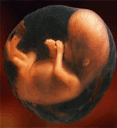
Evidence from both animal and human studies implicates the immune system in a number of disorders with known or suspected developmental origins, including schizophrenia, anxiety/depression, and autism. I developed a model of neonatal bacterial infection during my post-doc and early years as an assistant professor that demonstrated that neonatal bacterial infection in rats leads to marked hippocampal-dependent memory deficits in adulthood. However, deficits are only observed if unmasked by a subsequent immune challenge (peripheral LPS) 24 h prior to learning or immediately after learning. These data suggest the infection induces a long-term change within the immune system that, upon activation with the “second hit”, LPS, acutely impacts the neural processes underlying memory. Indeed, preventing the synthesis of brain IL-1β prior to the LPS challenge completely prevents the memory impairment in neonatally-infected rats. Subsequent experiments determined microglia as the sole cellular source of the exaggeraeted IL-1β signal, and thereby lend insight into the mechanism by which this cytokine is enduringly altered by early-life infection. Taken together, these data suggest an individual’s risk or resilience to later-life disorders may critically depend on their early lifeexperience, which can modulate cytokine activity within the brain long after the initial insult.
Representative Publications:
- Bilbo, SD, Biedenkapp, JC, Der-Avakian, A, Watkins, LR, Rudy, JW, & Maier, SF. (2005) Neonatal infection-induced memory impairment following lipopolysaccharide in adulthood is prevented via caspase-1 inhibition. The Journal of Neuroscience, 25, 8000-8009. PMC Exempt
- Bland, ST, Beckley JT, Young S, Tsang V, Watkins LR, Maier SF, & Bilbo SD. (2010) Enduring consequences of early-life infection on glial and neural cell genesis within cognitive regions of the brain. Brain, Behavior, & Immunity, 24, 329-338. PMCID: PMC2826544
- Bilbo, SD. (2010) Early-life infection is a vulnerability factor for aging-related immune changes and cognitive decline. Neurobiology of Learning & Memory, 94(1); 57-64. PMCID: PMC2881165
- Williamson, LL, Sholar, PW, Mistry RS, Smith, SH, & Bilbo, SD. (2011) Microglia and memory: modulation by early-life infection. Journal of Neuroscience,31(43): 15511-21. PMCID: PMC3224817